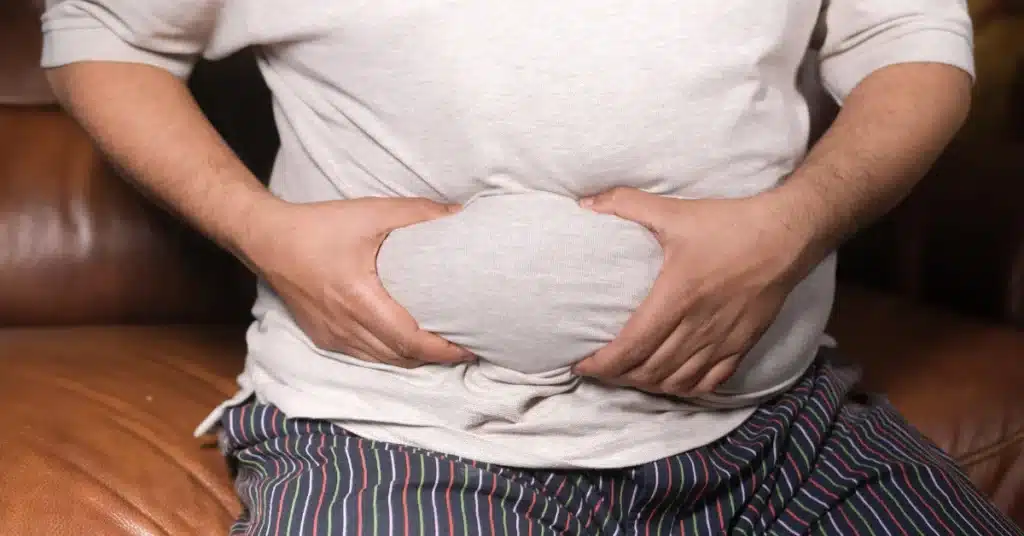Testosterone is responsible for various functions like bone density, muscle mass, and mood changes in men.
However, testosterone levels may decline in men as their age increases.
Understanding low testosterone symptoms in men may help in the effective treatment of the problem.
Let us explore the symptoms, causes, and treatment options of low testosterone in men.
Symptoms of low testosterone in males
One may notice various physical and psychological signs and symptoms if they are facing the problem of low testosterone.
These symptoms include Erectile Dysfunction, low libido, fatigue, reduced muscle mass, and more.
Let’s take a closer look at the signs of low testosterone.
Low libido and Erectile Dysfunction
Testosterone is responsible for maintaining libido and other sexual functions in men.
A study states that many men experience decreased libido due to low testosterone.
The problem can also contribute to difficulties in achieving and maintaining erections. Research states that low testosterone levels can lead to Erectile Dysfunction.
Reduced muscle mass
 Source: max_kegfire
Source: max_kegfireSarcopenia is the medical term for the age-related loss of muscle mass.
Men with low testosterone may experience a decrease in muscle mass and strength.
Loss of muscle mass may lead to weight gain by lowering the body’s metabolic rate.
A study states that testosterone may help in the treatment of Sarcopenia.
Reduced bone density
Osteoporosis is a medical condition that affects the bone density in an individual.
Testosterone helps in maintaining and strengthening bone health.
A review states that low testosterone or Hypogonadism can lead to bone loss and cause secondary osteoporosis.
Fatigue and low energy levels
Men with low testosterone may feel constant fatigue and have low energy levels.
This can affect their daily tasks, work performance, and even sex life.
People may feel tired more quickly and have trouble doing routine things that used to be easy.
Individuals may have low testosterone if they are constantly tired, even after enough sleep.
Mood changes and depression
Understanding emotional changes is important for maintaining mental and overall well-being.
A review states that Depression and Anxiety are the most common psychological symptoms of low testosterone.
Also, men with low testosterone may experience mood swings and show signs of irritability.
These psychological symptoms of low testosterone may have a negative impact on one’s social and sexual life.
Causes of low testosterone in males
 Source: tongwoongboot
Source: tongwoongbootAge is the main cause of low testosterone in men.
A study states that testosterone production starts decreasing in men aged 30 years or more.
However, there are many other factors that may contribute to the problem of low testosterone.
The other causes of low testosterone in men include Obesity, testicle injury, problems with some brain glands, medical interactions, and more.
Lifestyle factors such as lack of sleep, exercise, and poor diet can also lower testosterone levels in an individual.
Consult a doctor to identify the causes of low testosterone and a treatment plan.
Treatment options for low testosterone in males
Testosterone Replacement Therapy (TRT) is the main treatment option for the problem of low testosterone in men.
TRT treatment options include injections, pellets, patches, gels, and pills.
One can consult a doctor for prescription ED medicines like Viagra, Cialis, and more to help with ED due to low testosterone levels.
Also, making certain lifestyle changes can help boost testosterone levels naturally.
These changes include getting proper sleep, eating a balanced diet, and exercising regularly.
Always see a doctor before starting any medication or treatment plan.
Want to know more about the various low testosterone treatment options? Read our article: A Complete Guide on Low Testosterone Treatment
Key Takeaways
Low testosterone is a common problem with increasing age in men.
It can be diagnosed by identifying the signs and symptoms.
These symptoms include Erectile Dysfunction, low libido, fatigue, reduced muscle mass, and mood changes.
Lifestyle factors such as little sleep, poor diet, and lack of exercise can also lower testosterone levels in an individual.
However, many treatment options are available for the problem, like Testosterone Replacement Therapy, lifestyle changes, therapy, and ED medications.
Frequently Asked Questions
What happens when a man has low testosterone?
A man may experience signs and symptoms of low testosterone. These symptoms include Erectile Dysfunction, low libido, fatigue, reduced muscle mass, and mood changes. Consult a doctor if you face these symptoms and get a proper diagnosis.
What lifestyle changes can help boost testosterone?
The lifestyle changes that may help boost testosterone in men include eating a balanced diet, getting proper sleep, therapy, and physical activity. Be consistent with a healthy lifestyle to see changes in testosterone levels.
Can food items increase testosterone levels?
Yes, some food items, like oysters, leafy greens, fatty fish, and olive oil, may help the body produce more testosterone. Include these food items into your diet to help with low testosterone levels.
Are there any natural supplements that can help with low testosterone?
Yes, some natural supplements that may help with low testosterone are zinc, fenugreek, vitamin B6, Tribulus, magnesium, and more. However, doctors don’t recommend natural supplements due to their limited research and unknown side effects.
Can low testosterone affect fertility?
Yes, low testosterone may reduce fertility by decreasing the sperm count. Consult a doctor if you are trying or planning to conceive.
When referencing outside resources, GoodrxMedicine always provides full citations. To learn more about the measures we use to maintain the quality of our content, please review our Content Information Policy.











